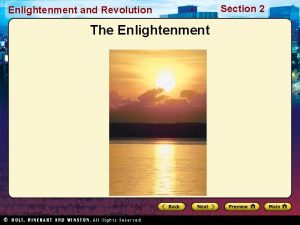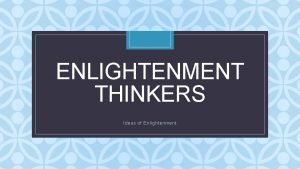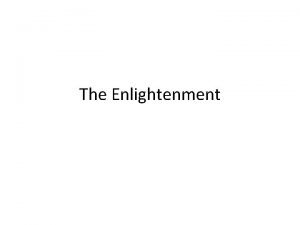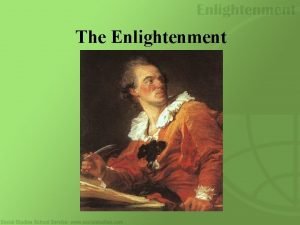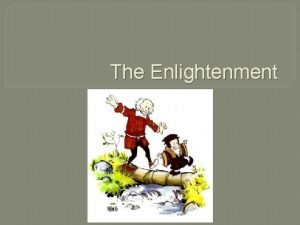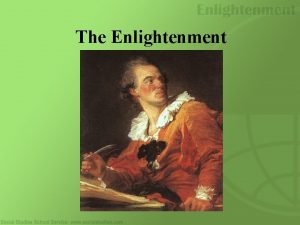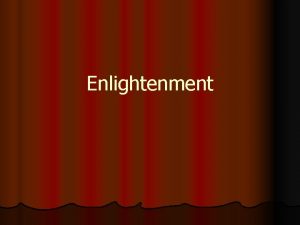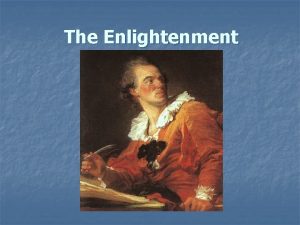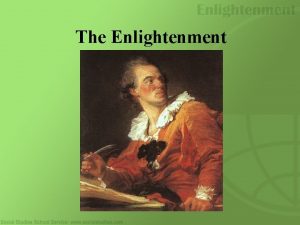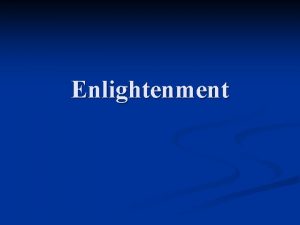The Enlightenment What Was the Enlightenment The Enlightenment













- Slides: 13

The Enlightenment

What Was the Enlightenment? The Enlightenment was an intellectual movement in Europe during the 18 th century that led to a whole new world view.

Enlightenment Principles • Religion, tradition, and superstition limited independent thought • Accept knowledge based on observation, logic, and reason, not on faith • Scientific and academic thought should be secular A meeting of French Enlightenment thinkers

Deism • Deists believed in God but rejected organized religion • Morality could be achieved by following reason rather than the teachings of the church Lord Edward Herbert of Cherbury, founder of deism

Deism (continued) • The “great watchmaker” • Thomas Paine

Thomas Hobbes (1588– 1679) • Applied rational analysis to the study of government • Attacked the concept of divine right, yet supported a strong monarchy • Believed that humans were basically driven by passions and needed to be kept in check by a powerful ruler

John Locke (1632– 1704) • The “State of Nature” • Tabula rasa

Locke (continued) • Treatises of Government • Rights

Jean-Jacques Rousseau (1712– 1778) • Philosophized on the nature of society and government • The Social Contract

Baron de Montesquieu (1689– 1755) • French noble and political philosopher • The Spirit of the Laws

Montesquieu (continued) • Separation of powers • Constitutional monarchy Frontspiece to The Spirit of the Laws

The Enlightenment and the American Revolution • Influence of Locke, Montesquieu • The Declaration of Independence Thomas Jefferson

The U. S. Constitution • Separation of powers • Checks and balances Painting depicting the Constitutional Convention
 Chó sói
Chó sói ưu thế lai là gì
ưu thế lai là gì Tư thế ngồi viết
Tư thế ngồi viết đặc điểm cơ thể của người tối cổ
đặc điểm cơ thể của người tối cổ Các châu lục và đại dương trên thế giới
Các châu lục và đại dương trên thế giới Từ ngữ thể hiện lòng nhân hậu
Từ ngữ thể hiện lòng nhân hậu Thế nào là hệ số cao nhất
Thế nào là hệ số cao nhất Tư thế ngồi viết
Tư thế ngồi viết Thẻ vin
Thẻ vin Frameset trong html5
Frameset trong html5 Cái miệng nó xinh thế
Cái miệng nó xinh thế Mật thư anh em như thể tay chân
Mật thư anh em như thể tay chân Thang điểm glasgow
Thang điểm glasgow Sự nuôi và dạy con của hổ
Sự nuôi và dạy con của hổ














